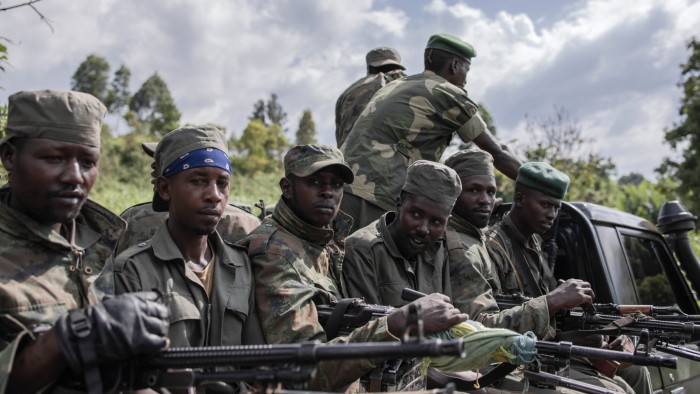Unlock the Editor’s Digest for free and gain access to insightful articles from experts in various fields. Our featured writer is an associate professor at Simon Fraser University and the author of ‘The War That Doesn’t Say Its Name: The Unending Conflict in the Congo’.
Recent events in the eastern Democratic Republic of Congo have brought attention to the ongoing conflict in the region. The M23 rebel group’s capture of the town of Sake and the subsequent fighting in Goma have highlighted the dire situation faced by millions of displaced people in the area.
Despite the scale of the crisis in the DRC, Western leaders have been slow to intervene effectively. With over 6 million people displaced, a significant portion due to the M23 conflict, there is a sense among Congolese that the international community has turned a blind eye to their suffering. Some even speculate that there may be a hidden agenda at play, as powerful nations seem indifferent to the plight of the Congolese people.
The main instigator of the M23 conflict has been identified as the government of Rwanda, a country heavily reliant on foreign aid. Reports from a UN group of experts have revealed Rwanda’s involvement in supporting the rebel group with troops and military equipment. Despite condemnation from the US, EU, and UK, Rwanda’s actions have not been met with significant repercussions.
Criticism of Rwanda’s actions has been overshadowed by conflicting interests. The EU provided financial support to the Rwanda Defence Force for deployment in Mozambique, while the UK considered sending asylum applicants to Rwanda as a deterrent for illegal migration. France has also been instrumental in keeping Rwandan troops in Mozambique to protect energy installations.
Rwandan diplomats have denied their army’s presence in the DRC, citing the need to protect the Congolese Tutsi community and defend against the rebel Forces Démocratiques de Libération du Rwanda. However, the emergence of the M23 rebel group has fueled tensions and collaboration between the Congolese army and the FDLR, exacerbating the situation in the region.
International donors have previously used their leverage to pressure Rwanda to end its support for armed groups in the DRC. In 2012, aid disbursements were suspended, prompting President Kagame to halt support for the M23, leading to its collapse. However, in the current geopolitical landscape, humanitarian concerns seem to take a back seat to issues like migration and business investments.
As we witness global outrage over conflicts in some regions while others are largely ignored, it raises questions about the priorities of the international community. It is crucial for world leaders to address the crisis in the DRC and hold those responsible for fueling the conflict accountable. Only through concerted efforts and solidarity can we hope to bring an end to the suffering of millions in central Africa.








